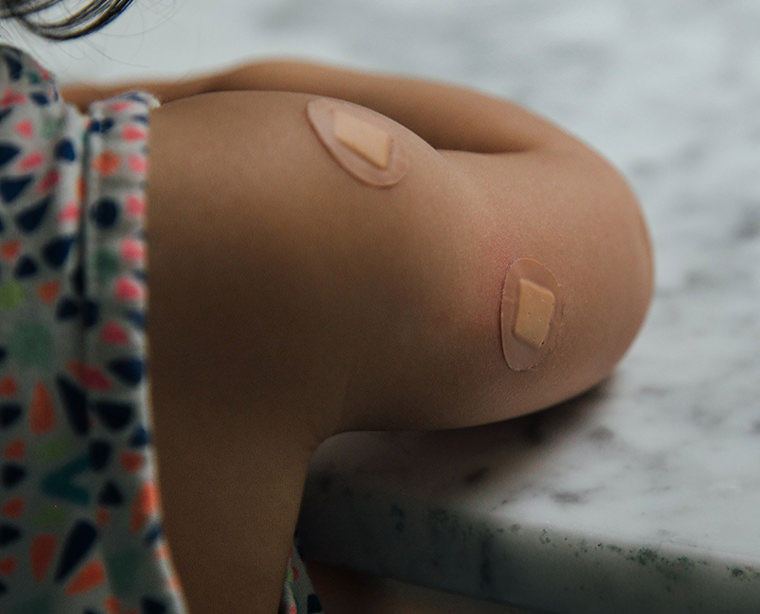

Living better with atopic eczema at school

By adopting a few good habits, patients can live better with eczema at school. Remember that heat, sweat and stress aggravate flare-ups in general. It is also important to continue the same habits practiced at home.
Some key solutions for school
Simply by taking these tips into consideration, you are off to a great start:
- avoid sitting too close to a radiator or sunny window to prevent heat and sweat
- sit far away from the board to avoid chalk dust
- during flare-ups, wash hands after recess (to avoid scratching with dirty hands)
- ensure that the soap at school is non-irritating (you may provide a soap-free gel for hand washing)
Sports at school
Your child can play sports. In fact, physical activity is even recommended. A few simple precautions should be taken, however, when playing sports with eczema:
- Chlorine and sweat are irritants. It is thus recommended to shower after sports activities and to apply a barrier cream before swimming
- Intense physical activity and contact sports (judo, karate, rugby) should be avoided during flare-ups.
- Stay hydrated by drinking water regularly.
- Take a quick shower with warm, but not overly hot, water to remove sweat after exercise. Dry off by dabbing the skin, then apply your emollient.
- Bring a change of clothes.
- Wear loose clothing.
On class outings to the pool, have the child get out of the water 10 to 15 minutes before the rest of the group.
This way, the patient can enjoy the activity with their peers, without having to rush to follow their recommended skin care routine.
Atopic eczema is often associated with asthma, so be on the lookout for early signs: rapid shortness of breath, difficulty breathing or wheezing, etc.
How to talk about eczema with classmates
Eczema is not contagious, so the first message to communicate to peers is that they cannot “catch it”. Once reassured, the other students will be open to listen to your child explain how their skin is more sensitive and reacts with red patches, which are very itchy but not dangerous.
Is eczema causing problems at school?
Eczema can sometimes disrupt sleep and cause stress, making it difficult to concentrate. Try discussing it with your child’s teachers.
Scratching alternatives at school
It is difficult to bring a thermal spring water spray or refrigerated gel packs to school, but there are other solutions:
- stones (which are naturally cold) to press against the skin when it itches
- a little wooden massage roller
- beads or a stress ball to play with and keep hands busy
- a piece of Velcro stitched into a pencil case, to scratch the case rather than eczema patches
How to dress for class
The same rules apply at school as at home:
- opt for cotton or linen fabrics
- wear fleece instead of wool
- avoid synthetic fabrics that make skin sweat
- avoid wearing hot turtlenecks (as heat is an aggravating factor)
How parents can help
Parents should communicate with the teacher about the nature and progression of atopic eczema. This way, the teacher will be aware that:
- the child may have difficulty paying attention due to itching.
- itching may cause poor sleep, or a lack of sleep altogether, resulting in the child being more irritable.
- scratching in response to itching is a reflex and thus difficult to control, but there are alternatives that may help the child. Topical corticosteroids are the standard treatment for eczema and, in most cases, are especially effective at reducing the severity of lesions and itching.
The teacher should also be made aware of the child’s potential tendency to withdraw and become isolated.
No, not for eczema on its own.
A PAI is required only if the child presents with a respiratory and/or food allergy in addition to eczema.


